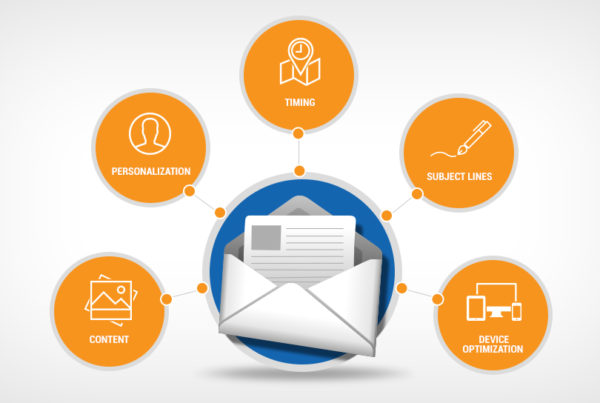We all know that the outbreak of COVID-19 has a growing impact on the global economy. It has a devastating impact on businesses all around the globe. It is having a drastic impact on consumer outlook, perceptions, and behaviors. This was inevitable when the coronavirus was categorized as a pandemic as customer behavior changes during a crisis. As a business, it’s your responsibility to inform people that you are aware of the challenges and show that you are willing to help any way you can, but while maintaining social distance, the only way you can provide some kind of aid to your customers is through digital communication. And those deeply affected can face great trauma. Feelings of anxiety and panic can easily overwhelm. How can communication aid during personal physical and emotional devastation?
What do we see with email rates during COVID-19?

E-mail open rates have increased tremendously for most industries during this crisis as many of the people are online. Though retail companies are seeing a decline and unsubscribe rates are falling, e-mails from the travel and hospitality industry are trying to adjust and share relevant information. Organizations and businesses have adapted and changed their calls to action, encouraging people to engage more, which has increased click rated. Existing subscribers and customers are still welcoming messages and updates so it is still a good time to send emails.
Why companies and businesses should consider sending emails during the Covid-19 pandemic?
- Email engagement has heavily increased during the pandemic. Click rates have risen from 17.04% to 18.97% according to E-mail Monday. (1)
- Around 46 million emails contained the words “COVID-19” and “coronavirus.” Both terms affect email performance. 5.3% of emails sent contained COVID keywords Over a few weeks, that adds up to over
- Sales through email almost doubled
- The volume of emails sent during the Covid-19 pandemic increased by 19%
What should marketers do in Times of Crisis?

The first thing to do in this time of crisis is not to panic. Try to use sensitive language and avoid promotional sales related to the crisis. Do the best research from reliable sources and provide people with accurate and helpful information that builds trust with your business and organization.
- Delivery of your messages
Organizations should know that unrelated emails and overflow of emails can cause a decrease in engagement. People are more selective in the emails and currently, they are openly related to the coronavirus. Marketers should only send emails once in a while and make sure they are valuable to your audience.
- No Longer Business as Usual
Focus on services and not on sales. Providing services with helpful ideas, discounts, free shipping or great content can help marketers gather future customers. Emails should be sent with relevancy, tone, usefulness, and service.
- Be a friendly email marketer
Life is difficult for people and buying priorities of customers have changed so focus on building your brand in a way that connects to people. Create helpful campaigns that support the community, police, healthcare professionals, and other service providers. Continue to run promotions for your brand, but stay relevant and add messages that promote kindness.
- Show empathy
To show empathy, e-mail marketers must share real emotions. Putting yourself in people’s shoes can help marketers connect with customers more efficiently. This can help build relations, loyalty, and impact performance.
- Introduce New Channels
A surge in internet traffic means more website visitors and increased email engagement. Marketers should try to enhance customer experience by adapting to reality and making use of other channels of engagement to reach customers.
- Simplify your emails
Simple and short email adds value and can increase engagement. It helps to bring out the authenticity and directness of your intentions. Be straightforward and pitch your story in a minimum number of words.
- Don’t sell your products
Don’t try to sell your products but instead, try having a conversation. Publish content that encourages discussion and develops a relationship.
- Focus on existing customers
Focus on how you can help existing customers. Providing tips to customers on how to remain safe or how to use your products safely can add value to your customers.
Email Communication Covid-19: What to do and what not to Do?

Email rates have seen and increased during this pandemic. Companies need to communicate during all levels of crisis, but before you add your voice to the growing rate of e-mails, take a pause and think of a communication strategy. Here are some do’s and don’ts that you need to know before you send an e-mail:
Do’s
- Provide specific updates on how your service is operating during this crisis. Reassure customers about your effort to resume services as soon as possible and provide some advice about safety.
- Most people do not want to leave their houses so provide information about online options or alternatives.
- Adjust your language to the situation and use a positive and reassuring tone.
- Try to direct people to your website. Keep emails simple and easy to understand and place more information on your website. Organizations and businesses can also consider creating a page specifically for updates and FAQs.
Don’ts
- Don’t send e-mails to people who you are not engaged in your business or who are your customers in this time of crisis. Only send e-mails to active customers and individuals.
- Don’t send emails without a purpose. If you don’t have an update or information to communicate, stay out of their inbox. Try to send messages that are appropriate during this situation.
- Don’t take the situation lightly or encourage people to ignore health advice. Analyze customers’ concerns seriously and don’t try to profit during the time of crisis.
How to adjust your marketing strategy during Covid-19?

During a state of emergency or crisis, email marketers will need to switch their marketing strategy. Here are 8 strategies that companies can include in their e-mails that can to help connect with customers throughout the COVID-19 pandemic
- Provide useful updates
- Convey empathy and address concerns
- Be calm and optimistic
- Be different and make your message unique
- Let them know something unexpected
- Share tips to remain safe
- Educate and inform
- Don’t exploit the situation
- Use simple subject lines and straight-forward messages
- Take peoples’ minds off the stress
Marketer’s Checklist
With brands facing the reality a quick list of considerations for adjusted marketing strategy and tactics in these weeks.
- Send an email reassuring your customers
- Speak about your services
- Check and double-check all automated templates
- Pause automatic and promotional messages
- Limit emails to one per day
- Encourage online purchases
- Add no-touch delivery to your delivery options
7 Things Marketers need to do During Coronavirus
During a crisis, marketers need to rethink their budgets and take an active role to respond.
- Internal communication: Make sure you are fully transparent with your employees. Keep employees updated on the changing situation and the impact on customers.
- Engage your audience: Provide useful information with a sensitive tone and keep customer’s concerns in mind to keep them engaged.
- Update your stock: Customer buying behavior changes during the time of crisis. Let your customers know when products are out of stock and come back in stock.
- Increase database: Continue building your database and reduce investment in ads. Place easy sign-up process and multiple sign-up options to turn web visitors into subscribers.
- Be Creative: During crises occur companies need to be extra creative in communication. This can help you adapt more fluidly to the crisis.
- Use catchy subject: Changing subject lines every day can help improve engagement with customers. Use new subject lines and don’t sell the same products again and again.
- Analyze customer behavior: Marketers should consider that people are at home and should adopt a new way to cope with this newly formed customer behavior.
People are active online during this time of the Covid-19 pandemic that any other time. Customers are exploring new interests and are open to new discoveries. Marketers should not see this crisis as a drawback but an opportunity to rise up and step ahead of the competition.
Source: https://www.emailmonday.com/guide-crisis-email-marketing/









